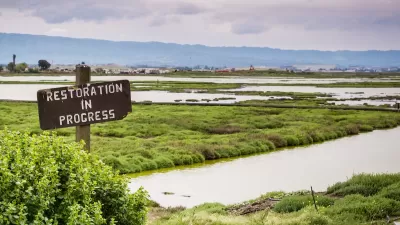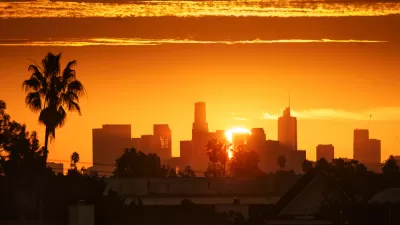The city of Vancouver's new Climate Emergency Action Plan incorporates a comprehensive scope of goals, including affordability, public health, and social equity, which can help build broad public support.
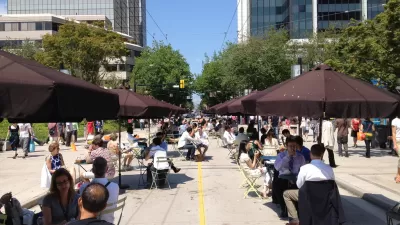
The city of Vancouver's new 371-page Climate Emergency Action Plan includes ambitious targets (called "Big Moves") to reduce climate change emissions and achieve other economic, social and environmental goals.
Big Move 1: by 2030, 90% of people live within an easy walk/roll of their daily needs. Make low-cost sustainable transportation options easy, safe and reliable for all Vancouverites, so that people get to work, school and other destinations without needing to rely on gas and diesel vehicles and the noise and pollution they produce.
Big Move 2: By 2030, two thirds of all trips in Vancouver will be made on foot, bike or transit.
Big Move 3: By 2030, 50% of the kilometres driven on Vancouver’s roads will be by zero emissions vehicles.
Big Move 4: By 2030, the carbon pollution from buildings will be cut in half from 2007 levels.
Big Move 5: By 2030, the embodied emissions from new buildings will be reduced by 40% compared to a 2018 baseline.
Additional goals:
Ensure that everyone has the opportunity to live and work in zero emissions buildings, and is able to benefit from the comfort, quiet, healthy air, and lower energy costs they offer.
Share the costs of reducing our carbon pollution in ways that reflect people’s ability to contribute to that transition.
Create new and varied opportunities for people to participate in a zero-carbon economy, including the support people need to transition to those opportunities.
According to modeling, the plan can achieve the city's emission reduction goals and provide significant co-benefits. It will require an estimated $1.27 billion worth of investments in solutions, such as electric vehicles and heat pumps, which will generate $2.25 billion savings and provide non-financial benefits including regional economic development, improved health from reduced noise and pollution, and more active lifestyles, plus municipal cost savings from reduced storm flooding, extreme heat, and wildfire smoke.
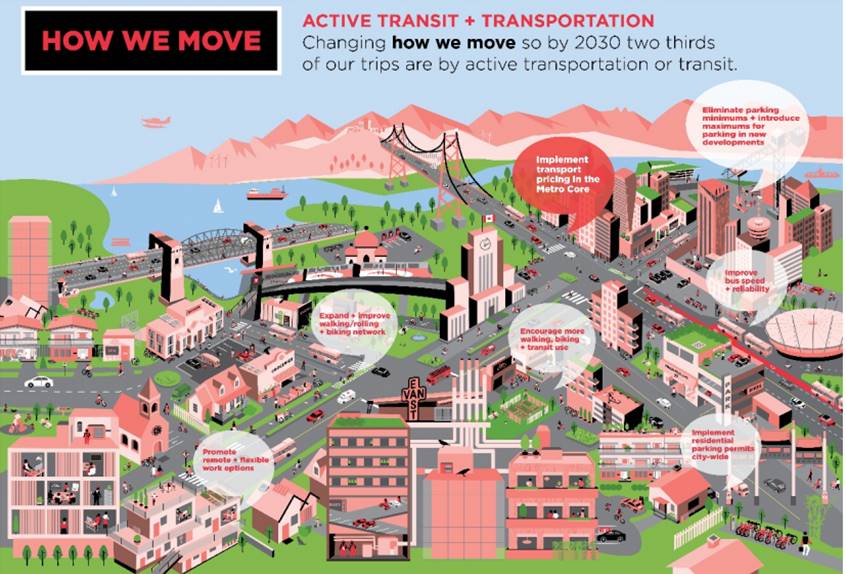
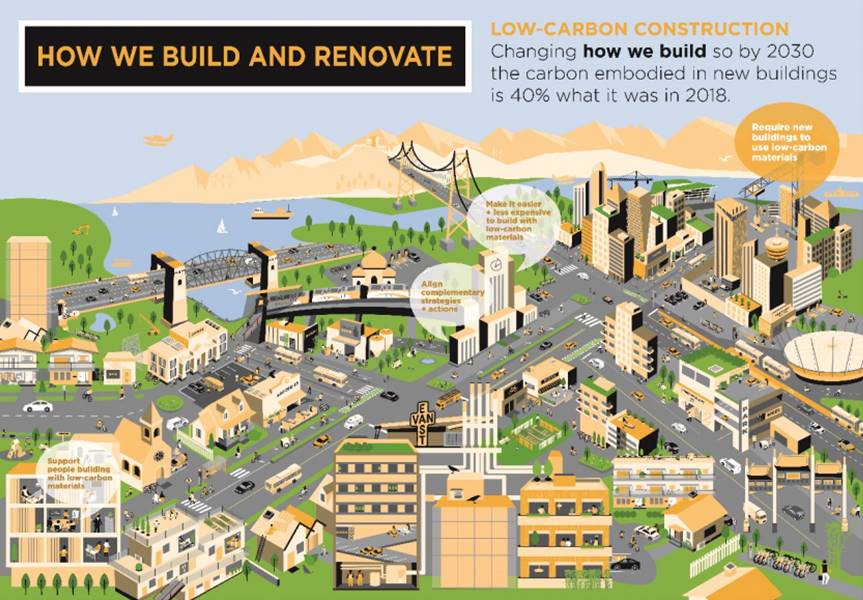
For news coverage of Vancouver's new Climate Emergency Action Plan, see an article by Mike Howell.
FULL STORY: Vancouver Climate Emergency Action Plan

Maui's Vacation Rental Debate Turns Ugly
Verbal attacks, misinformation campaigns and fistfights plague a high-stakes debate to convert thousands of vacation rentals into long-term housing.

Planetizen Federal Action Tracker
A weekly monitor of how Trump’s orders and actions are impacting planners and planning in America.

San Francisco Suspends Traffic Calming Amidst Record Deaths
Citing “a challenging fiscal landscape,” the city will cease the program on the heels of 42 traffic deaths, including 24 pedestrians.

Defunct Pittsburgh Power Plant to Become Residential Tower
A decommissioned steam heat plant will be redeveloped into almost 100 affordable housing units.

Trump Prompts Restructuring of Transportation Research Board in “Unprecedented Overreach”
The TRB has eliminated more than half of its committees including those focused on climate, equity, and cities.

Amtrak Rolls Out New Orleans to Alabama “Mardi Gras” Train
The new service will operate morning and evening departures between Mobile and New Orleans.
Urban Design for Planners 1: Software Tools
This six-course series explores essential urban design concepts using open source software and equips planners with the tools they need to participate fully in the urban design process.
Planning for Universal Design
Learn the tools for implementing Universal Design in planning regulations.
Heyer Gruel & Associates PA
JM Goldson LLC
Custer County Colorado
City of Camden Redevelopment Agency
City of Astoria
Transportation Research & Education Center (TREC) at Portland State University
Jefferson Parish Government
Camden Redevelopment Agency
City of Claremont



























